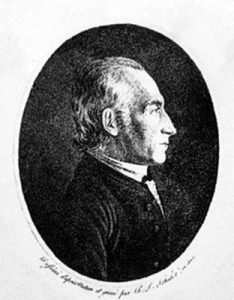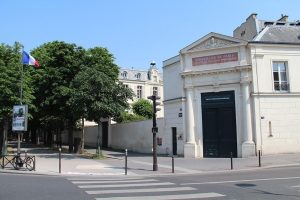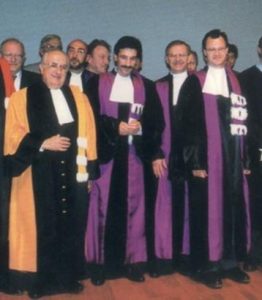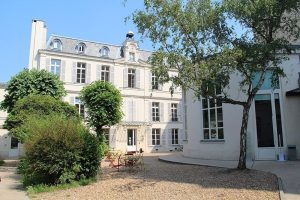Admission
Once the School of Montauban became part of the University of France, only public high school graduates could be admitted. However, the requirement of the lowest university degree could deter students with a true vocation from starting such studies. To prevent this, two “preparatory schools of theology” were founded to get students ready for the high school degree or for a degree regarded as equivalent by the University:
- one (called “Pension Lavondès”) opened in 1847 in Nîmes under the control of the liberals : the students attended high school in Nîmes and had tutors on the premises. After graduating from high school, they went to the Faculty of Geneva which granted some scholarships. This school was closed down in 1872 for financial reasons;
- the other one in the Batignolles neighbourhood in Paris was under the control of the Evangelicals. It opened in 1852 and sent its students to the Montauban Faculty.
Studies
Once admitted to the Faculty (and recommended by his Parish council) a student went through five years of study.
- The first two years, called l’auditoire de philosophie (philosophy auditorium), were preparatory years mostly devoted to languages : in order to have access to the Old Testament, students learned Hebrew, they likewise improved their knowledge of Latin, Greek, English and German and had to write an essay in French every week. They also studied philosophy, biblical archaeology, the history of ancient Greek and Roman religious and moral systems as well as the writings of the Church Fathers. Exams were held every semester.
- The next three years, called l’auditoire de théologie (theology auditorium), were accessible after succeeding the so-called “ascent” examination. Students studied Old and New Testament exegesis as well as historical, dogmatic, and practical theology. They also physics and natural science classes, exercises in catechizing and preaching with the help of the Montauban consistory. Exams were held every semester.
After five years, the students that were at least twenty-five years old and that “had proven their religious and moral worth” (donné des preuves satisfaisantes de capacité religieuses et morale), were allowed to sit for the exam of bachelor in theology, obligatory for appointment to the ministry. This exam consisted of written and oral tests in each of the different branches of theology. There were also practical exercises such as “writing and delivering a sermon in four days’ time, based on a text given by the School” (composer et réciter un sermon en quatre jours sur un texte donné par la Faculté). Besides, they had to present a small memoir also called “thesis”. If the students wanted to devote themselves to the teaching of theology, they could go on with their studies and get a Master’s degree or a Doctorate in theology.
Student life
The students could be accommodated in a hostel called “seminary”, but those who wished to do so, were free to find a place to stay in town. The discipline was harsh ; the schedules were strict and early.
Training level
It is difficult to estimate but it was far from being perfect. The professors were not scholars of international fame. The way they were appointed did not really favour a choice based on scientific criteria. Under the July Monarchy, the Minister would choose them himself. From 1852, they were elected by the consistories. From 1860, under the influence of Guizot, the best students were sent to Germany and the quality of education improved.
Besides, the Montauban School was the only school of higher education in this town. As a result the students could not benefit from an atmosphere of intellectual stimulation, as it was the case in Geneva or Strasburg. Despite demands, in particular in 1848, the school was not transferred to Paris. The Montauban School had to wait until after the First World War before it was transferred to a university town , Montpellier.
The most representative professors of this “pleasant” orthodox trend were Jules Pedezert, Charles Bois, Emile Doumergue, Jean Monod.
The Montauban Faculty
of Theology in the 19th century
Faculté de théologie de Montauban




